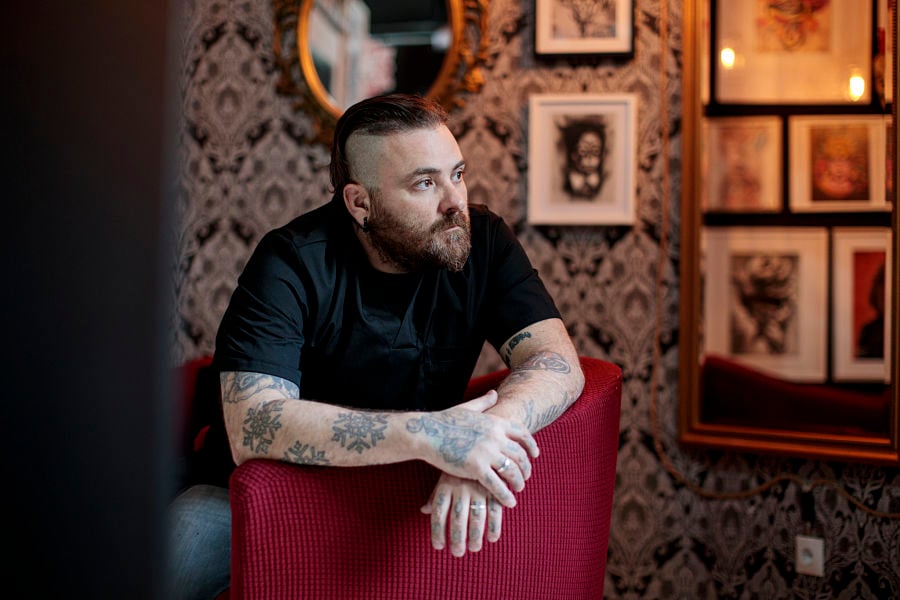

Colton Etherton was determined to carve out a unique niche for his Beaverton, Oregon-based financial planning practice, Out of the Office Planning, but it took a leap of faith before he convinced himself he could build a business focusing on tattoo artists.
“I was a little hesitant to go so niche, especially a niche that’s not your typical financial planning target market,” he said. “At first, my wife was against it, reminding me that I was just getting started and needed income.”
Etherton’s career in wealth management dates to 2015 and includes stints at Merrill Lynch & Co. Inc., Charles Schwab & Co. and an independent shop. But with less than a year under his belt as solo registered investment adviser, he knew he had to find a niche in order to stand out.
“Being a part of the XY Planning Network, they harp on niche practices a lot,” he said. Beyond just recognizing the potential opportunity a niche practice could offer, Etherton saw a niche as a matter of survival.

“I was putting out good content, but it was just out there,” he said. “Being a small fish in big pond of advisers, I knew I needed something unique, because without having clients and referrals it was hard.”
Like a lot of advisers searching for their ideal niche, Etherton kicked around multiple potential options, including veterinarians and barbers.
“The idea of a tattoo artist niche just kept coming back to me,” he said.
Etherton’s own ink, which he was discouraged from displaying at the advisory firm he left to go solo, is a clear driver behind the tattoo artist niche.
“I talked to my tattoo artist about the niche when I was getting work done, and my wife was getting work done,” he said. “I don’t see anyone else focusing on it. It’s an underserved group of people that I enjoy talking to.”
Right there, Etherton touched on a key to success in the niche advisory space. Whatever the niche, the idea is to not force it. “I could have gone the veterinarian-niche route and connected with my brother and all his colleagues, but that didn’t excite me,” he said.
Even with a practice that is still fledgling, Etherton said he knows he made the right decision.
“Business has been significantly different since making that change just a few months ago,” he said. “It just seems easier having a niche, and it was proven pretty quickly that it worked.”
In transitioning from a generalist to a niche adviser, one of Etherton’s first moves was redesigning his website to better appeal to his market.
“I changed my website on a Thursday, the next day I followed a tattoo artist on Instagram, who followed me back, and on Saturday she set up a financial planning appointment,” he said.
As he builds up his business, Etherton’s marketing strategy relies heavily on social media, which is why he appreciated the boost he got from popular financial planning blogger and podcaster Carl Richards.
“He gave me a shoutout on Twitter the week after I changed my site, and from that I got a referral from someone in Philly,” Etherton said. “Tattoo artists all kind of know each other. It’s a tight knit community.”
As niche markets go, tattoo artists might not typically fit into the broader wealth management target of affluent and high earners, but they do have unique needs and circumstances.
Some artists are small business owners and some are independent, so there can be a variety of cash flows and cash management issues. As self-employed workers, tattoo artists also need to consider both liability and disability insurance.
The niche lends itself to a flat, or hourly fee model, and opens the door to expansion into cosmetic tattoo artists, which also generally operate independent from an employer.
“I talk to the older camp of advisers that are kind of confused by my niche,” Etherton said. “But tattoo artists have all this stuff as business owners that they don’t know what to do with.”

President meets with ‘highly overrated globalist’ at the White House.

A new proposal could end the ban on promoting client reviews in states like California and Connecticut, giving state-registered advisors a level playing field with their SEC-registered peers.

Morningstar research data show improved retirement trajectories for self-directors and allocators placed in managed accounts.

Some in the industry say that more UBS financial advisors this year will be heading for the exits.

The Wall Street giant has blasted data middlemen as digital freeloaders, but tech firms and consumer advocates are pushing back.
Orion's Tom Wilson on delivering coordinated, high-touch service in a world where returns alone no longer set you apart.
Barely a decade old, registered index-linked annuities have quickly surged in popularity, thanks to their unique blend of protection and growth potential—an appealing option for investors looking to chart a steadier course through today's choppy market waters, says Myles Lambert, Brighthouse Financial.
